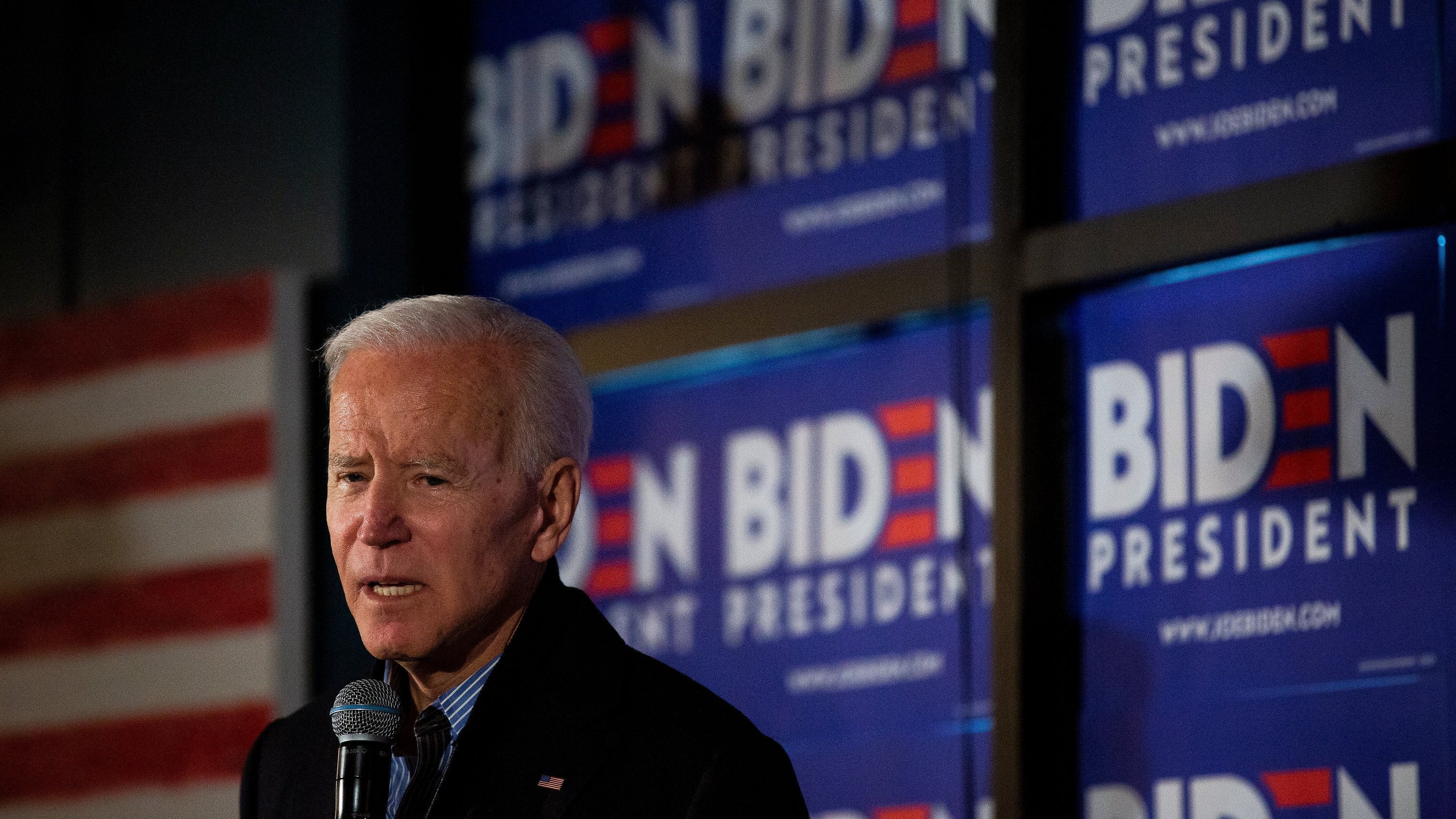Immediately after Hamas’s October 7, 2023, attack, U.S. President Joe Biden agreed with Israeli Prime Minister Benjamin Netanyahu that Israel had the right to defend itself. But in the months that followed, disagreements mounted over how that right was exercised. The Biden administration disapproved of Israel’s at times indiscriminate military campaign in Gaza, its restrictions on the flow of humanitarian aid, its failure to stop the construction of new Jewish settlements and settler attacks on Palestinians in the West Bank, and its prioritization of the war on Hamas over negotiations to release hostages. Above all, the administration was frustrated with Israel’s utter failure to put forth a viable strategy for governing Gaza once Hamas is degraded, an omission compounded by its refusal to advance any plan to address the Palestinian desire for self-rule.
Israel receives $3.8 billion annually in U.S. military aid, and the United States has been the country’s most dependable supporter for decades. And yet the United States was remarkably reluctant to publicly confront Israel over Gaza. Only after more than four months of seeing its private advice mostly rebuffed did the Biden administration openly break with Israel—and even then, it acted at the margins. It placed sanctions on a few extremist settlers, airdropped food into Gaza, built a floating pier on Gaza’s coast to facilitate aid shipments, and went against Israeli preferences on two largely symbolic UN Security Council resolutions. In May, seven months into the war, the administration placed a hold on the delivery of some large U.S.-made bombs to avoid even more civilian casualties. That same month, it threatened to pause the shipment of other military systems if Israel launched a full-scale assault on the city of Rafah, Hamas’s last stronghold, although it never followed through because it considered Israel’s attacks on the city as less than all-out. If success is defined as persuading Israel to adopt the course Washington wants, then U.S. policy toward the country since October 7 must be judged a failure.
A Persistent Predicament
The tensions with Israel over the past year are merely one example of a persistent but underappreciated predicament of U.S. foreign policy: how to manage disagreements with friends and allies. In two of the biggest crises the United States faces in the world today—the wars in Ukraine and Gaza—the question is how best to deal with a partner that depends on Washington but at times resists its counsel. In both cases, the Biden administration has responded in a muted, ad hoc way, often with little to show for it. It is ironic that an administration that has put U.S. alliances at the center of its foreign policy has found it so difficult to manage the differences that arise in those relationships.
The Challenge of Friends
To be fair, the problem long predates the Biden administration. It is inherent to alliances, be they de jure or de facto, since even the closest friends do not have identical interests. Over many decades, the United States has developed an extensive playbook for navigating disputes with adversaries, with tactics including everything from arms control agreements and diplomatic summits to economic sanctions, regime change, and war. When it comes to handling disputes with friends, however, Washington’s thinking is far less developed. The United States’ sprawling network of alliances gives it a meaningful advantage over China and Russia, neither of which has many allies; in reality, this advantage often amounts to much less than it should.
Managing Differences with Allies
The good news is that decades of history suggest that certain tactics for managing disputes with friends and allies work better than others. Washington should draw on its ample experience, good and bad, to help it think systematically about such differences so it can prevent them from emerging or, more realistically, better contend with them when they do. In particular, the United States needs to be prepared to act more independently, openly criticizing its friends’ policies if it considers them unwise and advancing alternative policies of its own. If Washington did that, it would have a better shot at achieving what might seem impossible: avoiding ruptures in its valuable relationships while safeguarding its interests.
Why Allies Defy Washington
One might expect that the United States’ overwhelming power ensures compliance among allies, and often it does. But at least as often, power does not translate into influence. Sometimes, allies simply resist or ignore U.S. preferences and steel themselves for the consequences. At other times, they attempt to circumvent the administration, mobilizing sympathetic domestic actors—Congress, the media, political donors—to pressure the White House to change course. This was a strategy used by Nationalist China, whose vaunted “China Lobby” exerted enormous influence on Washington early in the Cold War, and Israel has embraced it, too. Another option for American partners is to diversify their diplomatic portfolios, reducing their dependence on the United States by finding new patrons. Both Saudi Arabia and Turkey, for example, have turned to Russia and China as their ties with the United States have deteriorated.
A History of Friction
Why do allies dare to defy Washington? Because much more is usually at stake for them than for the United States, a disparity that gives them leverage despite their dependence. In many instances, the bone of contention constitutes much of the ally’s security or economic interests, whereas for the United States, it is merely one of many priorities, and so Washington is less likely to go to the mat over the dispute than is the ally. What’s more, if Washington distances itself from an ally, no matter how justified its actions, some critics will allege that it is no longer a reliable partner, perhaps prompting allies to act without taking U.S. interests into account and emboldening adversaries to challenge them. Such considerations restrain the United States.
Partly as a result, friction is more the rule than the exception when it comes to U.S. ties with friends and allies. During World War II, the United States clashed with the United Kingdom and the Soviet Union over how best to prosecute the war. It quarreled with Nationalist China over its strategy for defeating the Communists during the Chinese Civil War in the late 1940s; with France, Israel, and the United Kingdom over their invasion of Egypt during the Suez crisis of 1956; with France over NATO’s command structure in the 1950s and 1960s; with South Vietnam in the 1960s and early 1970s over governance and military strategy; and with Japan in the 1980s over trade. For more than 50 years, Washington has been at loggerheads with its NATO allies in Europe over defense spending. During the run-up to the 2003 U.S. invasion of Iraq, it could not bring most of its allies around to support that action.
Pakistan: A Problematic Friend
Pakistan is perhaps the epitome of a difficult friend. For the seven decades after its creation in 1947, the country has been a major recipient of U.S. economic and military aid. During the Cold War, Pakistan helped the United States contain the Soviet Union and facilitated the U.S. diplomatic opening to China. After the 1979 Soviet invasion of Afghanistan, it emerged as the United States’ chief partner in funneling arms to anti-Soviet forces there. But the relationship was often characterized by bitter disagreements over Pakistan’s nuclear program, its poor record on human rights and democracy, and its support for the Taliban and terrorism, including its harboring of Osama bin Laden. As a result, Pakistan saw the United States as an unreliable friend—and the United States saw Pakistan as more of a problem than a partner.
Turkey: A Frustrating Ally
Turkey offers another example of a relationship between ostensible allies that has intensely frustrated both sides. Turkey was an anchor of NATO during the Cold War, a critical member of the coalition that prevailed against Iraq during the Gulf War, and a country once heralded as evidence that Muslim-majority countries could be pro-Western, democratic, and accepting of Israel. But Washington and Ankara have also fallen out over Turkey’s military presence in Cyprus, its inadequate commitment to democracy and human rights, and, in recent years, its pro-Russian foreign policy, discrimination against the Kurds, and disputes with Israel.
Tactics for Managing Disputes
When one looks at this long history of disputes between the United States and its friends and allies, six relatively distinct tactics for managing them emerge. Some involve carrots, others involve sticks, and still others accept that the ally’s unwanted behavior won’t be changed—or can be changed only if its regime changes. There is no approach that works for all situations, but some do work better than the alternatives.
Persuasion
Persuasion is the most basic tool of alliance management. A good example of the tactic is the United States’ decades-long effort to dissuade Taiwan from formally declaring independence. Such a declaration would almost certainly trigger Chinese military action, perhaps a blockade or invasion of the island, forcing the United States to decide whether to come to Taiwan’s defense. Any U.S. response, be it action or inaction, would prove costly. Successive U.S. administrations have pointed out to Taiwan how much it has gained despite its lack of international recognition—the island is now a vibrant democracy with a thriving economy that has enjoyed more than half a century of peace—and how much it would stand to lose if it pursued independence. Perhaps even more important, Taiwan has been made to understand that the United States would be far less likely to intervene on its behalf if it is seen as having provoked a crisis.
A Second Example: Israel
A second successful example of persuasion involves Israel. In January 1991, in the opening hours of Operation Desert Storm, the U.S. military’s campaign to liberate Kuwait, Iraqi leader Saddam Hussein fired Scud missiles against Israel to bring it directly into the war and, in so doing, lead Arab states to drop out of the international coalition that had formed against him. Israeli leaders understandably sought to exercise their right to self-defense, but U.S. President George H. W. Bush persuaded them to hold back, arguing that Israel’s entry into the war would jeopardize a goal more important to them: defeating Iraq. He also pledged that the United States would destroy Iraqi launch sites. Even though Bush and his Israeli counterpart, Prime Minister Yitzhak Shamir, had a strained relationship, the Israeli government made the difficult decision to stand down.
Recent Attempts to Restrain Israel
But some more recent U.S. efforts to restrain Israel, above all the attempt to rein in its military campaign in Gaza, have had decidedly worse results. The Biden administration’s pleas to dissuade Israel from escalating its conflict with Iran have had a more mixed record. On April 1, 2024, Israel launched an airstrike on an Iranian diplomatic compound in Syria, killing several senior members of Iran’s Quds Force. The Biden administration was given only minimal warning of the attack and worried that it risked transforming what had been an indirect conflict in Gaza into something more direct and dangerous. Two weeks later, Iran retaliated with a barrage of drones and missiles against Israel. Fearing an escalatory cycle even though the Iranian attack caused only negligible damage, the Biden administration privately advised Israel not to respond militarily. “Take the win,” Biden told Netanyahu, adding that if Israel did escalate, it would be on its own. Israel did not stand down, but it did respond in a limited way, firing a handful of missiles from aircraft outside Iran’s airspace, destroying an air-defense battery near Iran’s Natanz nuclear facility, and keeping largely silent about the attack afterward. In short, Israel largely heeded U.S. advice, and an even larger crisis was averted.
Incentives
When persuasion alone fails, the United States can turn to incentives, another tool in the alliance management toolkit. A prime example of the successful use of incentives comes from the 1980s, when Israel opposed the U.S. sale of “airborne warning and control system” surveillance aircraft, or AWACS, to Saudi Arabia. The United States wanted to accommodate Saudi desires, but Israel worried about maintaining its military edge over the Arab countries and lobbied hard against the deal. The Reagan administration lobbied just as hard to overcome congressional opposition to it. In the end, a compromise was reached: the sale went ahead, but with conditions, including a guarantee that no information gathered by the AWACS would be transferred to third parties without U.S. consent.
Promoting Desirable Behavior
In addition to mollifying allies, incentives can be used to encourage behavior that otherwise might not materialize. The United States has provided economic and military aid to Egypt to strengthen the government so it would maintain peace with Israel. It has provided assistance to Pakistan to promote counterterrorism cooperation, maintain collaboration in Afghanistan, and preserve at least some influence over Islamabad’s domestic and foreign policy. And it has provided aid to Turkey to promote restraint in the Middle East and the eastern Mediterranean, bolster NATO, and limit Russian inroads.
Sanctions
Sanctions are the opposite of incentives. These measures are normally thought of as weapons wielded against adversaries, yet they have also been used against friends. In 1956, Washington applied such pressure on France, Israel, and the United Kingdom after their invasion of Egypt and attempt to seize the Suez Canal. It levied sanctions against Turkey in the wake of its 1974 intervention in and occupation of Cyprus; against Pakistan in 1990 over its nuclear weapons program; against Israel in 1981 over its bombing of Iraq’s Osirak nuclear reactor and in 1991 over its settlement of Soviet Jews in the occupied territories; and against Saudi Arabia in 2021 over the murder of the dissident (and U.S. permanent resident) Jamal Khashoggi at the Saudi consulate in Istanbul in 2018.
Mixed Results
If the goal was to modify the target’s behavior, the results of these sanctions were generally not encouraging. The one exception was during the Suez crisis, when France, Israel, and the United Kingdom backed down in the face of U.S. economic pressure. But the episode occurred at a time when the British were particularly vulnerable to U.S. economic pressure (the pound sterling could not hold its value without Washington’s backing), France was heavily dependent on Middle Eastern oil, and Israel had yet to amass much political support in the United States. Neither the threat nor the reality of sanctions stopped Pakistan’s nuclear program. The same can be said for the sanctions aimed at ending Turkey’s occupation of Cyprus.
A Normative Tool
Sanctions can have value as a normative tool, however: even if they fail to stop the unwanted activity, they can still raise costs for the friend and signal U.S. displeasure, sending a broader message to other friends about U.S. preferences. A case in point was the George H. W. Bush administration’s policy toward Israel in 1991. The administration had gone to considerable lengths to pressure the Soviet Union to allow Jews to emigrate and was seeking to convene a regional peace conference after the Gulf War. So it was frustrated when the Israeli government put into place subsidies and other policies to incentivize those refugees to live in settlements in the occupied territories—especially since the Israeli government had asked the United States to guarantee $10 billion in loans meant to facilitate their move. The Bush administration tried to get the Israeli government to end policies designed to steer Soviet Jews to settlements; when that failed, it reduced the amount of loans it would guarantee, demonstrating that ignoring U.S. entreaties would come at a cost.
Regime Change
The most draconian approach to dealing with a disagreement with a friend is to seek the ouster of the offending government. That was the approach the Kennedy administration took with its troublesome South Vietnamese ally, President Ngo Dinh Diem. The administration had done much to boost Diem’s political prospects, but it soon grew disillusioned with his corrupt and ineffective leadership, viewing him as a liability in the struggle against North Vietnam and the Viet Cong. Matters reached a head in the summer of 1963, when the U.S. officials in Saigon made clear that they and their bosses in Washington would look favorably on a coup led by senior military officers. By November 2, Diem was not just out of power but dead, killed by the soldiers who ousted him. Yet the Kennedy administration’s decision didn’t achieve its desired effect: Diem’s successors proved equally incapable of winning over the Vietnamese people and defeating the North. What the coup did do, however, was associate the United States ever more closely with the government and fate of South Vietnam.
A More Recent Effort
A more recent, and infinitely more modest, effort at regime change comes from 2024. Chuck Schumer—the Senate majority leader, a Democrat from New York, and arguably the most prominent Jewish politician in the United States—had grown frustrated with Israel’s seeming lack of concern for civilian lives in Gaza. On March 14, he delivered a speech from the floor of the Senate castigating Netanyahu for the high death toll and calling for new elections in Israel on the assumption that a change in leadership would translate into a change in policy. His call did signal displeasure from a stalwart supporter of Israel, but it failed to induce any change in the country’s leadership or policy. Worse, it had the counterproductive effect of allowing Netanyahu to wrap himself in a nationalist cloak as a defender against outside interference.
Looking the Other Way
Another option for dealing with an irksome ally is more passive: looking the other way. Instead of making an issue out of a disagreement with a friend, Washington can ignore the transgression, recognizing that attempts to change a partner’s behavior would be too costly or doomed to fail. Think of this as diplomatic avoidance.
The Israeli Nuclear Program
Again, Israel provides a good example of this approach at work. In the 1950s and 1960s, the country decided that it needed a nuclear arsenal of its own to counter the enormous conventional military advantages of its Arab enemies, which refused to accept its existence. The United States strongly opposed the Israeli nuclear program, which violated its commitment to nuclear nonproliferation. Over time, however, Washington decided not to make a big deal of the disagreement, concluding that Israel could probably never be persuaded to give up its quest for the bomb. The United States had other, more important Cold War priorities in the Middle East that required cooperation with Israel, and it had other tools (including military aid and nuclear assurances) that could hold back other friends in the region from going nuclear. Officials may also have thought that a nuclear Israel could persuade Arab governments that the Jewish state was in the region to stay, in the process paving the way to acceptance and even peace talks. Looking the other way was made easier by Israel’s decision never to officially acknowledge its arsenal and to avoid obvious testing. More than half a century later, the policy seems vindicated: there is peace between Israel and several of its neighbors, and no other country in the region has yet to follow Israel’s lead and go nuclear.
Israeli Settlements
When it comes to other Israeli activity, however, diplomatic avoidance has proved far more costly. After its victory in the 1967 Six-Day War, Israel constructed settlements throughout territories it acquired in the conflict: the Golan Heights, the West Bank, Gaza, and Sinai. Most U.S. administrations viewed these settlements as impediments to any future exchange of territory for peace. Still, no U.S. president (with the partial exception of George H. W. Bush) demanded that Israel stop building or expanding settlements and threatened sanctions if it didn’t. U.S. officials were uninterested in a political fight with Israel and its American supporters in the absence of a promising agreement between Israel and the Palestinians. Not surprisingly, the number of settlements and settlers has skyrocketed over the past 50-plus years. And as predicted, even before October 7, the establishment of a Palestinian state became a much harder sell within Israel, since settlers are a powerful voting constituency, and among Palestinians, who have grown far more skeptical that peace would give them control over significant, contiguous territory.
Ukraine's 2023 Counteroffensive
The United States has also looked the other way with Ukraine. Many U.S. officials doubted the wisdom of Ukraine’s decision to launch a major counteroffensive in 2023, worried that it would not only fail but also divert precious resources away from the task of defending the territory Ukraine already held. Others feared that if the counteroffensive were to succeed, it might prompt Russia to use, or at least threaten to use, nuclear weapons. The administration was also reluctant to press for any diplomatic initiative that would entail Ukraine compromising its goal to recover all its lost territory going back to 2014. But the U.S. government was unwilling to confront Ukraine, lest it appear that it wasn’t doing enough on behalf of a beleaguered friend resisting aggression.
Avoidance Backfired
In this case, avoidance backfired. As predicted, Ukraine’s 2023 counteroffensive failed to achieve a decisive breakthrough while using up precious ammunition and equipment and costing many lives. That failure also handed an argument to members of Congress who opposed aid to Ukraine, making it easier for them to claim that the assistance wasn’t associated with a policy that stood a chance of succeeding. It would have been better for the Biden administration to have pressed Ukraine to adopt a defensive strategy as soon as the battlefield stabilized in mid-2022 and to indicate what territorial arrangements it might be prepared to accept in exchange for a temporary cease-fire. That approach would have preserved the country’s manpower and resources and persuaded Russia that no amount of offensive effort on its part could succeed.
India: The Risky Choice
The United States has followed a passive approach toward India, too. In recent years, Democratic and Republican administrations alike have prioritized the U.S. relationship with the world’s most populous country to push back against China, expand bilateral trade and investment, and engender goodwill among the politically active Indian American community. But this strategy has required overlooking India’s growing illiberalism at home, its extrajudicial killings abroad, and its continued economic and military ties with Russia, making the United States appear more opportunistic than principled. Over time, looking the other way comes with risks, since an India that is less devoted to its secular heritage could become less united and stable. Washington’s nonconfrontational approach also increases the likelihood that India will continue to hedge in its foreign policy and remain a less than fully reliable U.S. partner.
Independent Action
If all other approaches fail or are deemed too costly, there is one powerful option left to deal with a disagreement with an ally: independent action. Instead of trying to get another country to alter its behavior, the United States can work around that country, promoting American interests as it sees fit.
The Biden Administration's Response to Gaza
Frustrated with the military campaign in Gaza, the Biden administration has used the tactic against Israel. In February 2024, after vetoing three UN Security Council resolutions it regarded as unfair to Israel, the United States, over Israeli protests, introduced one of its own that called for a temporary cease-fire. The proposal was promptly vetoed by China and Russia for being too supportive of Israeli concerns, but the next month, the United States abstained on another resolution that Israel had asked it to veto. In Gaza, meanwhile, the Biden administration also acted unilaterally, airdropping food and constructing a floating pier on the Mediterranean coast to circumvent Israeli restrictions on the flow of humanitarian aid. In May, it placed a hold on supplying 500- and 2,000-pound bombs that can cause widespread civilian casualties. The impact of all this independent action was modest: it failed to do much to limit the severity of the humanitarian crisis, but it did signal that Israel did not have a veto over U.S. policy.
Ukraine and Bin Laden
Another recent example involves Ukraine. In 2022 and 2023, the Biden administration refused to provide Kyiv with aircraft, long-range missiles, and cluster munitions. The policy was not a sanction, since it wasn’t a punishment meted out in response to anything deemed counterproductive. Rather, it was a unilateral decision to hold back weapons that Washington thought would be insufficiently effective and potentially escalatory.
Arguably the most dramatic example of independent action was the May 2011 U.S. military raid that killed Bin Laden, who had been hiding in a compound close to Pakistan’s military academy. Assuming that at least some senior Pakistani officials knew of his presence there and sympathized with him, the Obama administration decided not to warn Pakistan of the raid. Instead, U.S. forces flew in without permission, violating the sovereign territory of a friend in what proved to be a successful mission. U.S. officials rightly concluded that the stakes were too high to jeopardize the operation by notifying the Pakistani government and that, at any rate, the U.S.-Pakistani relationship was already so fraught that the marginal effect of this offense would likely be negligible.
Afghanistan: A Cautionary Tale
Independent action can go too far, however. Consider recent U.S. policy in Afghanistan. In February 2020, the Trump administration, seeing no path to either military victory or negotiated peace after two decades of war, went behind the back of the Afghan government and signed an agreement with the Taliban to end the U.S. military presence in the country. The deal wound down the U.S. presence, but at an enormous cost: it undercut and demoralized the Afghan government, paving the way for the Taliban to regain control of the country 18 months later, when the Taliban seized Kabul as the Afghan government collapsed. The Biden administration could have reneged on the agreement with the Taliban; there was a good chance that the Afghan government could have survived had Washington maintained its relatively light footprint of several thousand personnel in noncombat roles. Such a policy promised neither peace nor victory, but compared with what transpired, it would likely have been much better for the people of Afghanistan—and for the United States’ reputation.
The Need for a New Approach
Much of U.S. policy toward allies is built on the assumption that agreement is the norm and disagreement the exception. Finding common ground should almost always be possible, policymakers implicitly believe, given how dependent U.S. allies are and how easy it is for Washington to draw on its considerable resources to penalize or support them. But this confidence is misplaced. Disagreements with friends are a regular feature of U.S. foreign policy, one that cannot be wished away.
Addressing the Problem
The first step to addressing the problem head-on is to understand which approaches work and don’t work, and when. Persuasion can be difficult or impossible when the friend sees core interests at stake. Still, genuine strategic dialogue on the most sensitive issues, if done privately and before a policy is decided, can head off crises and surprises in the relationship. And even if the effort fails, it can be cited to justify a decision to turn to other approaches.
A Strategic Dialogue
What might this mean in practice? With Israel, Washington should put forward its thinking on diplomatic and military responses to Iran’s nuclear program and Hezbollah, as well as on what it wants from Israel regarding the Palestinians and the Palestinian Authority in Gaza and the West Bank. It should also hold honest, if difficult, discussions with Ukraine, making the case for a largely defensive military orientation and a diplomatic initiative that reflects realities on the ground.
Using Incentives Strategically
Incentives naturally make persuasion more effective, and the tool appears to be working with Saudi Arabia: Riyadh is considering normalizing its relations with Israel and limiting its relationship with China in exchange for a U.S. security pact and civilian nuclear help. With Ukraine, the United States could pledge to reduce restrictions on the use of American weapons and offer long-term military aid and security assurances, all to persuade Kyiv to adopt a more defensive military strategy and declare its readiness in principle to accept an interim cease-fire. With Taiwan, it could more explicitly promise to come to the rescue in the event of a Chinese invasion (a policy sometimes known as “strategic clarity”), while making clear that Taipei needs to exercise restraint on cross-strait issues and invest more in its own defense. With Israel, it could agree to buttress a stabilization plan for Gaza or offset the costs of any peace agreement with the Palestinians, offering additional military assistance to meet any increased threats stemming from a loss of territory and economic assistance to compensate those who would be required to vacate settlements.
The Limits of Sanctions
The track record for sanctions does not inspire confidence; when used against friends, they are better at signaling U.S. displeasure than at changing behavior. If the offending behavior continues after sanctions are imposed, over time, other considerations take precedence and the measures are eased or removed altogether, making the United States look weak and hypocritical. As a rule, before imposing a sanction on a friend, Washington should consider whether it will want to sustain a sanction, given that other interests will inevitably intervene. And if it does decide to go that route, the sanctions should be narrowly targeted.
A Case Study: The Khashoggi Murder
The Biden administration’s reaction to the Khashoggi murder is an example of getting it wrong and right. It was completely predictable that relations with Saudi Arabia would have to take into account Iran, Israel, the war in Yemen, oil prices, and China, all of which made it unsustainable to treat the kingdom as a pariah. But then the administration wisely pivoted. It showed its unhappiness with what had taken place and its commitment to principle (something the Trump administration did not do) by releasing the CIA’s investigation into the murder and sanctioning a number of Saudi senior officials who were not central to the workings of the relationship. But it did not introduce sanctions or conditions that would have made it impossible to cooperate.
Avoiding Regime Change
The harshest instrument, regime change, should be avoided. It is unlikely to result in new leadership, and even when it does, there is no guarantee that the new regime will be both preferable and enduring. Few things in foreign policy are harder than engineering the internal workings of another country. Trying to do so with an ally is all but sure to backfire, taking the focus off substantive disagreements, handing the target a nationalist card to play, and raising uncomfortable questions in other allied capitals.
The Cost of Diplomatic Avoidance
Looking the other way can make sense when it would be nearly impossible to influence a friend’s behavior or when other large interests are at stake that argue against a confrontation. The tactic does not make sense, however, when the United States possesses ample influence or when the costs of ignoring the problem are high.
Independent Action: A Powerful Option
Persuasion, incentives, sanctions, and looking the other way have something in common: they all leave the initiative with the friend or ally, which explains their poor track record. The one option that hands control to the United States is independent action. Working around an ally can be attractive when the other options fail or are ruled out and U.S. interests still call for something to be done.
A More Assertive US Policy
With Israel, the Biden administration could build on its existing workarounds and go much further. It could, for example, require that goods made in Israeli settlements be labeled as originating in the occupied territories rather than as “made in Israel,” restoring a policy that the Trump administration reversed. The United States could stop sugarcoating its objection to settlements and describe them as “illegal” rather than as merely “obstacles to peace” or “inconsistent with international law”—and support a UN Security Council resolution saying so. It could do more to reform and strengthen the Palestinian Authority. And it could publicly articulate and push for its vision for governance in Gaza and for the resolution of the Israeli-Palestinian conflict more broadly.
Engaging in Domestic Politics
In Ukraine, similarly, the United States could stipulate that none of the arms it provides could be used for a new counteroffensive and that military aid would be continued only if Ukraine committed to accepting an interim cease-fire based on the current territorial division. (To be clear, Ukraine would not have to give up its territorial claims, its ability to rearm, or the option to join alliances as a condition of aid.) What would result would not be peace, but as the experience of the Korean Peninsula has made clear, an armistice can at least stop the war.
Independent action should also include a willingness to publicly criticize behavior or even join the other countries’ domestic political debates. The leaders of Israel, Ukraine, and Taiwan have all worked legislators and the media; U.S. presidents should take a page from their books and do the same thing. In 2015, Netanyahu spoke to Congress to argue against the Obama administration’s Iran nuclear deal, and in June 2024, he recorded a video falsely accusing the Biden administration of threatening Israel’s security by holding back arms and ammunition. Obama should have asked for equal time in the Knesset to take his case for the nuclear deal to the Israeli people, and Biden ought to have marched into the White House briefing room and demanded an apology from Netanyahu for misrepresenting the facts. In situations like these, what is called for is tough love—or at least tougher love.
Preserving Relationships
Independent action is no panacea, since it doesn’t stop the offending behavior, although it could lead the partner to back off. But it does allow the United States to shield itself from and offset some of the adverse consequences. It also helps preserve the relationship while reminding the friend that the United States has options of its own. And in the long run, this tactic can demonstrate the costs of not taking U.S. preferences and interests into account. That, after all, should be the thrust of any U.S. strategy toward an ally with which it disagrees: to pursue its interests without doing irreparable damage to a valued relationship.

















